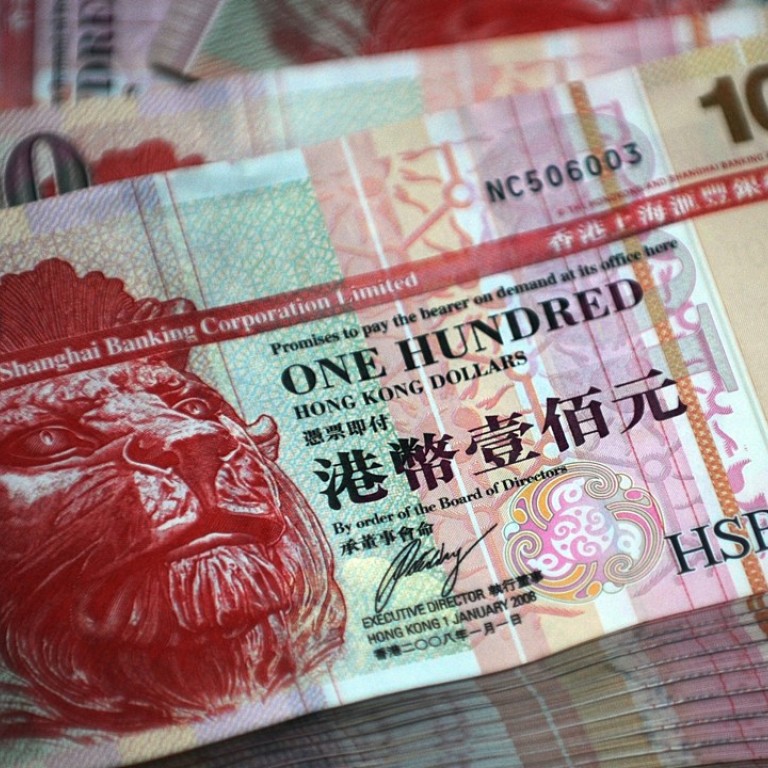
Hong Kong dollar spikes as short positions cut on expectations of higher rates
Demand for the currency also seen rising ahead of a public share offer by a health care unit of China’s Ping An Insurance
The Hong Kong dollar marked its biggest intraday gain in two months on Thursday as traders cut back short positions in the currency because of expectations that higher rates will close arbitrage windows and that demand for the currency will rise ahead of a big initial public share offering.
The currency rose 0.07 per cent to HK$7.8441 to the US dollar in mid morning trading, before retracing slightly to HK$7.8473. The rise was the biggest intraday gain since January 17.
Liquidity in the Hong Kong dollar has already tightened after the Hong Kong Monetary Authority (HKMA), the city’s de facto central bank, spent HK$51 billion (US$6.5 billion) to boost the currency after it fell to the lower end of its permitted trading band.
One-month Hibor – the Hong Kong interbank offered rate, a gauge of bank borrowing costs – climbed by 3.9 basis points on Thursday to 0.95 per cent, and is up 16 basis points since a week ago. The Hibor spread with its Libor counterpart has narrowed by 10 basis points, making carry trades – selling low-yielding assets to buy ones another with higher returns – less lucrative.
“The Hong Kong dollar rose sharply because traders are closing their short Hong Kong dollar positions because they can smell that interest rates are going to go up,” said Jasper Lo Cho-yan, senior vice-president at iBest Finance.
“It is not profitable to conduct an arbitrage trade at near the HK$7.85 level when you know the US-HK interest rate differential will narrow and boost the local currency.”
The Hong Kong dollar was pegged at HK$7.80 to the US dollar in October 1983, with a trading band of 7.75 to 7.85 introduced in 2005. Under this mechanism, the HKMA is obliged to intervene to prevent the currency from trading outside that range.
Traders are also expecting demand for the Hong Kong dollar to rise further with the opening of subscriptions from Monday for the initial public share offering of Ping An Healthcare and Technology, a unit of Chinese insurance giant Ping An.
Subscriptions for the shares in the unit, which is also known as Ping An Good Doctor after the name of its app, will be open until April 26, with listing scheduled for May 4. The offer is targeting raising US$1 billion, of which 6.5 per cent is from the public offer.
If the offer sees strong demand, that would mean more demand for Hong Kong dollars, which along with the HKMA interventions would tighten liquidity further and see local interest rates catch up with their US counterparts, analysts said.
However others noted that the rise in rates may only be a temporary phenomenon, since funds locked up for the Good Doctor IPO would be released when the subscription ends, meaning rates could retrace lower afterwards.
“Today’s reduction in short positions is still relatively small in size. It is still uncertain if the HKMA has won the battle at this point,” said Ryan Lam, head of research at Shanghai Commercial Bank.

